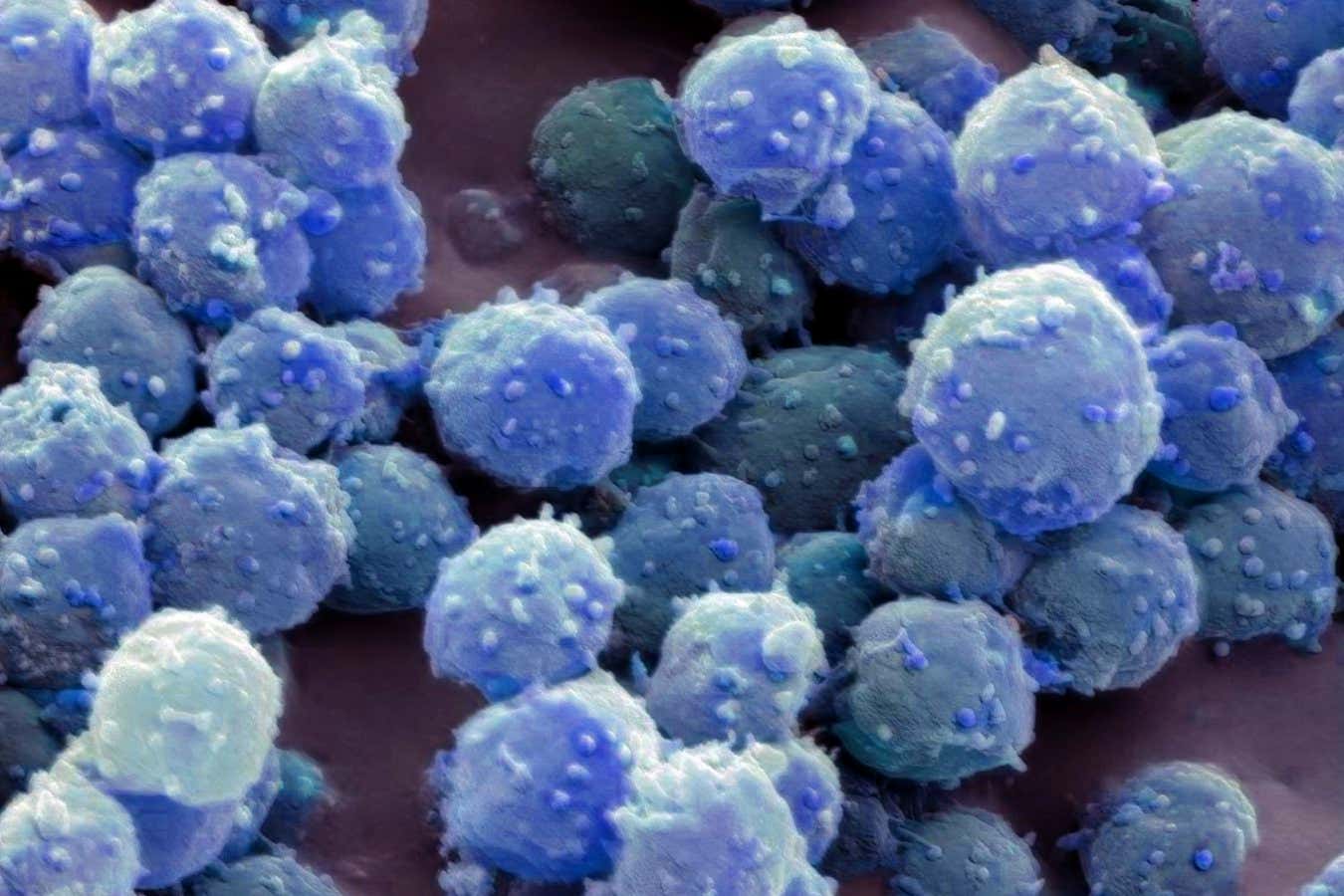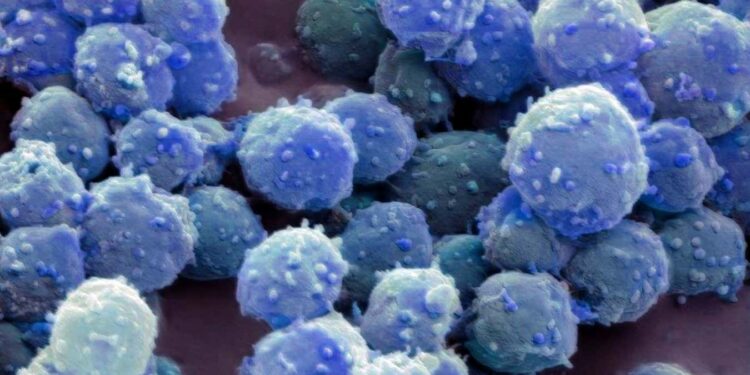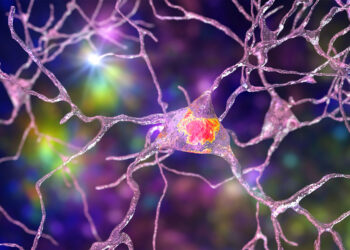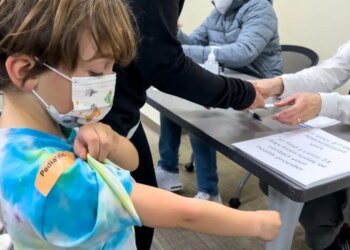
Some Archaea microorganisms can survive in extreme conditions
STEVE GSCHMEISSNER/SCIENCE PHOTO LIBRARY
Microbes isolated from Siberian permafrost appear to have remained alive for more than 100,000 years, based on an analysis of their DNA. Their genetic overlap with other species suggests such astonishingly long lifespans may be widespread among the closest living relatives of all organisms with complex cells.
Other microbes have been isolated from extremely ancient marine sediments – some more than 100 million years old – but it remains unclear whether individual organisms can survive over those stretches of time. “I can’t run an experiment that long,” says Karen Lloyd at the University of Southern California. “[Time] is the weirdest variable to work with.”
Lloyd and her colleagues wanted to look for microbes in places they knew had not changed for very long periods of time, reasoning anything still living there must be as old as the surrounding environment. That search took them to the Chukchi peninsula at the easternmost edge of Siberia, where they drilled a 22-metre-long core of permafrost.
This let the researchers sample DNA from a layer of marine sediment that froze sometime between 100,000 and 120,000 years ago. The sediment contained pores of liquid water where microbes might have been trapped, with no nutrients or organisms able to move in or out. “Being frozen means there are these ice structures around them,” says Lloyd.
The next question was how to distinguish between living and dead cells. To do so, the researchers sequenced millions of DNA fragments from the permafrost, using them to reconstruct the genomes of all the different microbial species present. They then added an enzyme to the mix that would repair degraded DNA and repeated the reconstruction process.
Most of the reconstructed genomes were much more complete after the researchers added the DNA repair enzyme, suggesting they came from dead cells that had not been actively maintaining their DNA’s integrity, says Lloyd. However, genomes from six species barely changed, implying the DNA came from living cells that had actively maintained their genomes since being frozen at least 100,000 years earlier.
All six species with intact DNA came from the phylum Promethearchaeota, also known as the Asgard archaea. These organisms are considered the closest living relative of all eukaryotes – the domain of life that includes animals, plants, fungi and protists.
“Finding living Asgard archaea in ancient permafrost provides a window into their evolutionary history… and how they may have influenced the emergence of complex life forms”, especially during periods when Earth was completely frozen, says team member Renxing Liang at the China University of Geosciences.
A further surprise was the long-lived species weren’t appreciably different from Asgard archaea isolated in less-restricted environments. All of them shared similar genes for protein and DNA repair, which may have enabled them to slowly replace parts of their cells – without dividing – while in extremely low-energy environments. “They’re like the most boring Asgards in the world,” says Lloyd. “The fact that they’re boring implies that this is something all of them can do.”
Stephen D’Hondt at the University of Rhode Island says the research is a “real advance” towards understanding extremely long lifespans – both how widespread they might be and the evolutionary basis for them.
However, he cautions against applying these findings beyond frozen settings like the permafrost. “Being frozen for a long time with no activity is not the same thing as living for a long time with a very low level of activity.”
Topics:
Source link : https://www.newscientist.com/article/2493719-we-are-unlocking-how-frozen-microbes-stay-alive-for-100000-years/?utm_campaign=RSS%7CNSNS&utm_source=NSNS&utm_medium=RSS&utm_content=home
Author :
Publish date : 2025-08-25 21:30:00
Copyright for syndicated content belongs to the linked Source.









